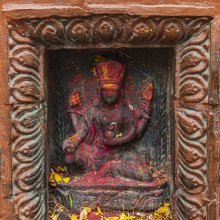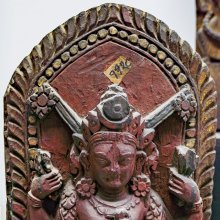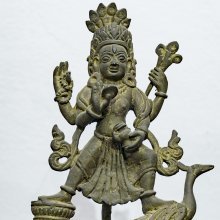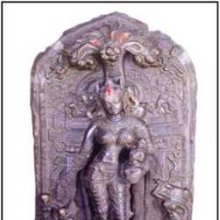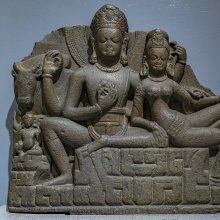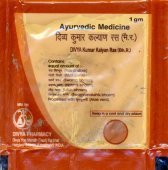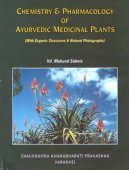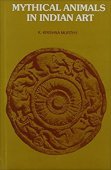Kumar, Kumār: 4 definitions
Introduction:
Kumar means something in Hinduism, Sanskrit, the history of ancient India, Hindi, Tamil. If you want to know the exact meaning, history, etymology or English translation of this term then check out the descriptions on this page. Add your comment or reference to a book if you want to contribute to this summary article.
Images (photo gallery)
(+9 more images available)
India history and geography
Source: Shodhganga: Vernacular architecture of Assam with special reference to Brahmaputra Valley1) Kumar is an Assamese term referring to “Potter community”.—It appears in the study dealing with the vernacular architecture (local building construction) of Assam whose rich tradition is backed by the numerous communities and traditional cultures.
2) Kumar is also an Assamese term referring to “the rows of posts besides the mudhar post”.

The history of India traces the identification of countries, villages, towns and other regions of India, as well as mythology, zoology, royal dynasties, rulers, tribes, local festivities and traditions and regional languages. Ancient India enjoyed religious freedom and encourages the path of Dharma, a concept common to Buddhism, Hinduism, and Jainism.
Languages of India and abroad
Sanskrit dictionary
Source: DDSA: The practical Sanskrit-English dictionaryKumār (कुमार्).—1 P. To sport, to play with fire.
See also (synonyms): kumāl.
Source: Cologne Digital Sanskrit Dictionaries: Shabda-Sagara Sanskrit-English DictionaryKumār (कुमार्).—[kumāra] r. 10th cl. (kumārayati) To play, especially as a child also kumāla.
Source: Cologne Digital Sanskrit Dictionaries: Benfey Sanskrit-English DictionaryKumār (कुमार्).—i. 10 (rather a denom. derived from the next), [Parasmaipada.] To play as a child.
Sanskrit, also spelled संस्कृतम् (saṃskṛtam), is an ancient language of India commonly seen as the grandmother of the Indo-European language family (even English!). Closely allied with Prakrit and Pali, Sanskrit is more exhaustive in both grammar and terms and has the most extensive collection of literature in the world, greatly surpassing its sister-languages Greek and Latin.
Hindi dictionary
Source: DDSA: A practical Hindi-English dictionaryKumar in Hindi refers in English to:—(a) bachelor; —[vrata] celibacy; —[vrati] a celibate..—kumar (कुमार) is alternatively transliterated as Kumāra.
...
See also (Relevant definitions)
Starts with (+250): Kumara, Kumara bhatta, Kumara Kassapa Vatthu, Kumara Sutta, Kumara-asya, Kumara-Divana, Kumara-gadianaka, Kumara-gadyanaka, Kumara-guru, Kumara-kaccanam, Kumara-kassapa, Kumara-mahapatra, Kumara-mataipalli, Kumara-ponaku, Kumara-tala-atta, Kumara-varga, Kumara-vritti, Kumarabandhaki, Kumarabharana, Kumarabhargaviya.
Ends with: Adhirajakumaar, Bhakumar, Nandkumar, Sanatkumar, Sukumar, Vanakkumar.
Full-text (+70): Kumal, Kumariru, Kumariruttu, Kumara, Cotoneaster microphyllus, Hingori, Cham-kothal, Makahi, Hinguri, Lohajam, Panchpatta, Choral-guti-khoa, Amol, Jutuli, Dabar, Pani-jamun, Horu, Peepal, Jolphai, Koroi.
Relevant text
Search found 86 books and stories containing Kumar, Kumār, Kumaar; (plurals include: Kumars, Kumārs, Kumaars). You can also click to the full overview containing English textual excerpts. Below are direct links for the most relevant articles:
Vakyapadiya of Bhartrihari (by K. A. Subramania Iyer)
Verse 3.14.121 < [Book 3 - Pada-kāṇḍa (14): Vṛtti-samuddeśa (On Ccomplex Formation)]
Rudra-Shiva concept (Study) (by Maumita Bhattacharjee)
8. Destruction of the three cities < [Chapter 5 - Rudra-Śiva in the Purāṇic Literature]
Harshacharita (socio-cultural Study) (by Mrs. Nandita Sarmah)
Part 9.5: Dress and Other Amenities of a Soldier < [Chapter 5 - Political Aspects]
'The Triple Stream' < [June 1937]
Who’s Who < [April – June, 2007]
Work of Art < [July – September, 2000]
Lord Hayagriva in Sanskrit Literature (by Anindita Adhikari)
Kavyamimamsa of Rajasekhara (Study) (by Debabrata Barai)
Part 23 - The story of kāvya-puruṣa by Rājaśekhara < [Chapter 2 - A General Outlines of Sanskrit Poetics]
Related products
(+3 more products available)
